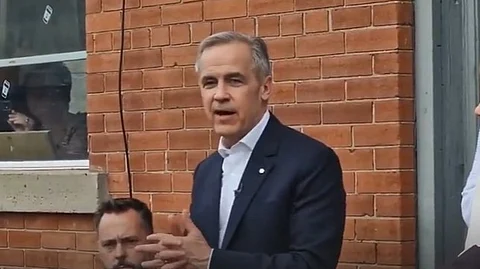

This is the first column in a series of two dealing with big-picture politics in Canada
One of the defining themes of the 20th century was the failure of socialism as a means of organizing an economy or society. The triumph of the United States and the free-market West over the Soviet Union and its planned-economy allies in the Cold War was not primarily military — it was a victory of markets over command-and-control systems.
Yet in the 21st century, socialism continues to gain ground, threatening our prosperity and freedom.
A Soviet-era joke captured the absurdity of the system: “We pretend to work, and they pretend to pay us.” Former Eastern Bloc countries know the dangers of a return to their so-called socialist paradise. Ask yourself: what socialist countries have succeeded over time in terms of both freedom and economic performance? Argentina? Venezuela? Cuba? The list of failures is long.
So why are free-market countries seeing ballooning governments, more regulation, reduced choice, and slower growth?
One clue came from Roy Cooper, the former two-term Democratic governor of North Carolina, who recently announced his Senate bid. He claimed: “The biggest corporations and the richest Americans have grabbed unimaginable wealth at your expense.”
This is the politics of envy. It stokes resentment but distorts reality. No one “grabbed” anything. The very wealthy — people like Bill Gates and the late Steve Jobs — created revolutionary products and industries. They succeeded through innovation, risk-taking, resilience, and some luck. They didn’t take from others; they created value for millions.
Who doesn’t use iPhones or Microsoft software?
Jeff Bezos launched Amazon with little capital, losing money for years before transforming global retail. Warren Buffett, alongside Charlie Munger, modeled the investing wisdom of Benjamin Graham. These individuals didn’t exploit the system — they helped build it. And any one of us, theoretically, could do the same.
Most of these people are now giving away their wealth. But even without philanthropy, their contributions to productivity, innovation, employment, and tax revenue are immense. The charge that they “grabbed” wealth “at your expense” is nonsense.
Cooper and his fellow travelers ignore what makes markets work: voluntary exchange, competition, and choice. Capital builds businesses, employs people, supports cities, pays taxes. This doesn’t happen at anyone’s expense — it benefits everyone. That’s not political spin; it’s basic economics.
Markets reward those who satisfy consumer needs and weed out those who don’t. “The market is a harsh mistress,” as the saying goes — but it’s far more honest and efficient than a bureaucrat deciding what's best for you.
Freedom doesn’t just reward risk-takers — it raises standards for all. The idea that socialism offers a better alternative has never been supported by real-world evidence.
Another myth is that the state provides free goods and services. As the late satirist P.J. O’Rourke said of U.S. health care: “If you think health care is expensive now, wait until you see what it costs when it’s free.”
The best — or worst — example is Canada’s health care system. Once seen as proof of Canadian superiority over the U.S., it has become a betrayal of those who’ve paid into it for decades only to be denied timely care when they need it.
Health care now consumes roughly 50 percent of provincial budgets — and growing. That puts pressure on other priorities like education, while forcing Canadians into needless suffering and second-tier services.
Yet diehards still oppose private options, even if they would ease public wait times. Many would rather see others suffer under an inferior system than allow anyone to spend their own money to get faster care. That’s not compassion — it’s envy masquerading as equality.
The socialist myth that wealth harms the poor manipulates emotion to justify expanding the state. In reality, free markets and democracy — intellectually inseparable — have lifted billions from poverty and raised living standards worldwide.
Today, the most aggressive push to expand government comes via a supposed global climate crisis. The United Nations, a socialist entity formerly led by the one-time head of Socialist International, is using climate alarmism to justify a new form of global governance — with themselves in charge, of course.
One of their most enthusiastic allies has been our own prime minister, Cagey Carney. He won’t be able to serve all his masters: the EU, UN, and WEF elites who share his top-down instincts, and Canadian voters who expect competence and accountability.
His failures — and contradictions — will be the subject of my next column.
